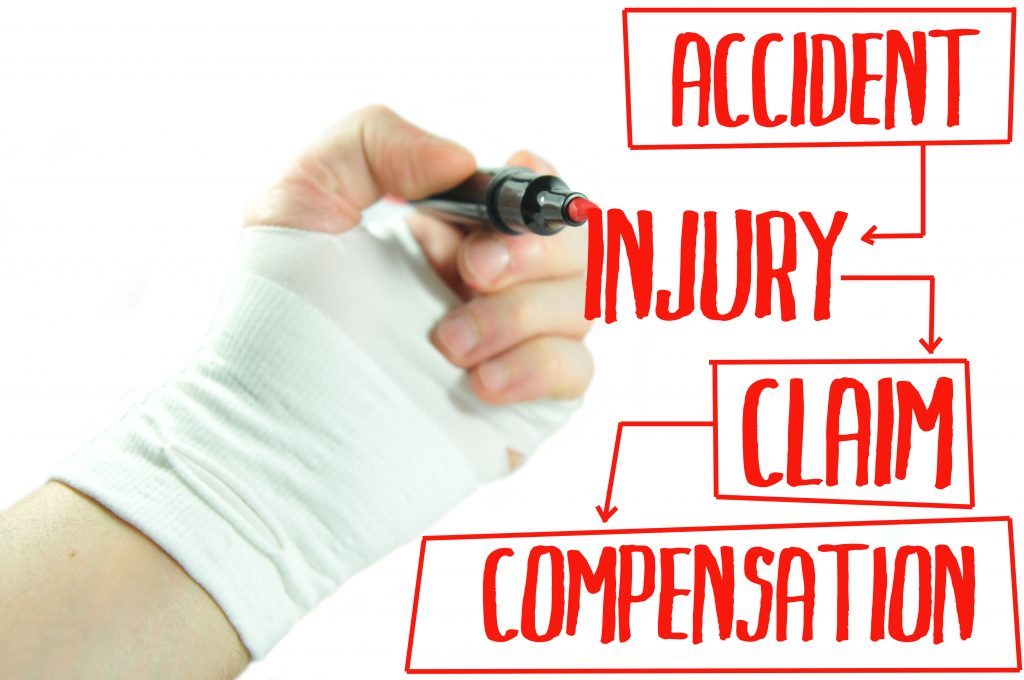How Pain and Suffering Are Compensated for in an Illinois Personal Injury Case
How Pain and Suffering Are Compensated for in an Illinois Personal Injury Case
Suffering a serious personal injury from being in a car crash can impact the victim’s life far beyond medical bills and lost wages. He/she may be unable to take care of family and perform daily activities during the recovery phase and even after that. This often takes a toll on the victim’s mental health and their family.
It is important that victims of personal injury hire aggressive legal representation to get fair compensation. Usually, victims are provided compensation either through a settlement or a jury verdict.
How Are Different Types of Damages Classified in a Personal Injury Case?
When someone is a victim of a personal injury accident, they suffer different types of harms. These harms are different from person to person; they are personal. These harms are called “damages.” The law recognizes these distinctions and requires compensation for victims for the losses they suffer.
Personal injury cases can include different types of damages. They are categorized into the following:
- Economic Damages
Economic damages involve actual financial losses. They are measured from a monetary standpoint and can be quantified appropriately. These include:
- Medical expenses
- Loss of wages or employment
- Lost earning capacity or future earnings
- Rehabilitation expenses
Economic damages are always financial. They are concerned with replacing the money a victim and their family suffers as a result of the injury. Some types of these economic damages (medical bills for example) are called “special damages” or “specials.”
- Non-economic Damages
Non-economic damages are different. Not every harm is financial. In fact, the most significant losses are usually the mental and emotional harms. Some examples of non-economic damages are:
- Physical pain
- Mental suffering and anguish
- Loss of enjoyment of life
Again, because these are personal, the amount for these varies in the amount from case to case.
- Punitive Damages
Punitive damages (sometimes called “exemplary damages”) are not intended to compensate the victim, but used as a means to punish the wrongdoer and prevent a similar behavior in future. Punitive damages are meant for highly egregious conduct by the defendant.
How Is “Pain and Suffering” Calculated and Defined?
Pain and suffering refer to the physical pain and mental suffering caused by a personal injury. This may include physical discomfort, psychological harm to the victim due to the injury. Pain and suffering can also include diagnosable conditions like depression, anxiety, frustration, or anger during and after the course of recovery.
Pain and suffering is categorized as a non-economic harm because they are not based on a fixed formula. So how is it calculated?
Here are a few factors that are considered when determining the extent of pain and suffering undergone by a victim:
- The nature and extent of injuries that have occurred during the accident
- Impact of the injury on daily life and activities of the victim
- Impact of the injury on the victim’s career and work
- The lack of interest in performing hobbies and recreational activities due to the physical and mental agony caused by the injury
- Any permanent impact of the injuries
- Acute pain and discomfort caused due to the injury
This is not a complete list but certainly gives a flavor for what types of factors are considered. At trial, a jury performs a detailed evaluation of the amount claimed for each damage and determines if it is reasonable.
Pain and suffering does not have the same kind of impact on everybody. Thus, the jury (during a trial) or an insurance provider (if settling out of court) consider relevant factors like those mentioned above to assign a value to the claim.
An experienced personal injury attorney in Illinois will be equipped to help you settle the matter with the maximum compensation without having to go to trial.
How to Determine If the Injury Qualifies for Pain and Suffering Damages?
Any physical injury will qualify for a pain and suffering claim. However, not all pain and suffereing claims are the same. In general terms, the more sever the pain, the higher the pain and suffering compensation. A good personal injury attorney will ask you questions about your injuries to help determine the level of the pain and suffering. Some factors to consider are:
- Nature and extent of the injury. A severe injury general has more significant pain and suffering than a minor one.
- How long has the injury lasted? The longer someone has endured the pain the greater the suffering and thus the hgher the compensation.
- Other treatment. Has the victim required mental health treatment? If the victim’s mental function is impacted, the court will look for proof to establish that.
- Pain ratings are often part of a doctor or physical therapist’s evaluation. These scales can provide one piece of information.
- Friends and family. Many times the statements and reports of friends and family provide a glimpse into the magnitude of the pain the victim has endured in a way that is better than what the victim relates.
How Is Compensation for Pain and Suffering Calculated?
Compensation for pain and suffering is not randomly determined, but is based on several methods used by the personal injury attorney, jury and/or the insurance provider.
The primary way lawyers determine pain and suffering values is through experience. Experienced lawyers have handled thousands of cases and the great ones have tried many cases. That experience gives the lawyer a sense for value.
In a similar sense, another way that is commonly used is to look at past results in similar cases. Good lawyers have access to millions of case results and can compare those results to your case to see what your case might be worth.
Insurance companies use various types of formulas. These formulas include things like whether the victim went to the emergency room, did they have surgery, and whether there an impairment rating. The companies also rate the lawyer who represents the victim. It is for this reason you should hire only the best lawyer, one with plenty of personal injury experience.
How Is Pain and Suffering Proven?
The damages caused due to pain and suffering are recoverable only if they are proven first. The evidence needs to be presented in forms that support the victim’s claim. This means, the stronger the evidence, the easier it will be to recover a fair compensation.
The proof can be in the form of:
- Medical record bills or reports used in the course of treatment
- Prescriptions
- Receipts for over-the-counter medicines
- Evidence showing time away from work or school
- Photographs of injuries
- Diaries, pain logs showing the suffering
Why Hire a Personal Injury Attorney to Prove Pain and Suffering?
Compensation for pain and suffering can be obtained either through an out-of-court settlement or as a part of the damages awarded by the judge/jury at a trial. In both situations, it is important to have the support of a top personal injury attorney.
A personal injury attorney will help the victim prove the extent of damage – like pain and suffering – so a fair verdict and full compensation can be received. An experienced attorney will also ensure that the rights of the victim are protected.
A good lawyer will ensure that the victim does not agree to any unfair settlement with the opposing party or his/her insurance company. Furthermore, a personal injury attorney will gather the major facts related to the accident and represent the case in the best way possible to win the maximum compensation.
Legal experts are familiar with the State laws. This will further contribute towards getting a fair settlement for the victim’s pain and suffering.
Wrap Up
Physical pain and mental suffering that result from a personal injury can have a huge impact on the victim’s life. It is, therefore, important that it be compensated. The above points shed light on the legal implications of pain and suffering, and how it is calculated for the purposes of an injury-related insurance claim or lawsuit. Hopefully, they will give you a better understanding of how the process works.
At Dixon Law Office, we are in the business of helping our clients get the justice they deserve. We do this by listening to our clients and then fighting hard to get them the compensation they deserve.
If other lawyers have told you “You have no case,” call Dixon Law Office. We can evaluate your case and tell you how we can help you. It is what we do for you. Because when everything goes wrong, we make it right.


